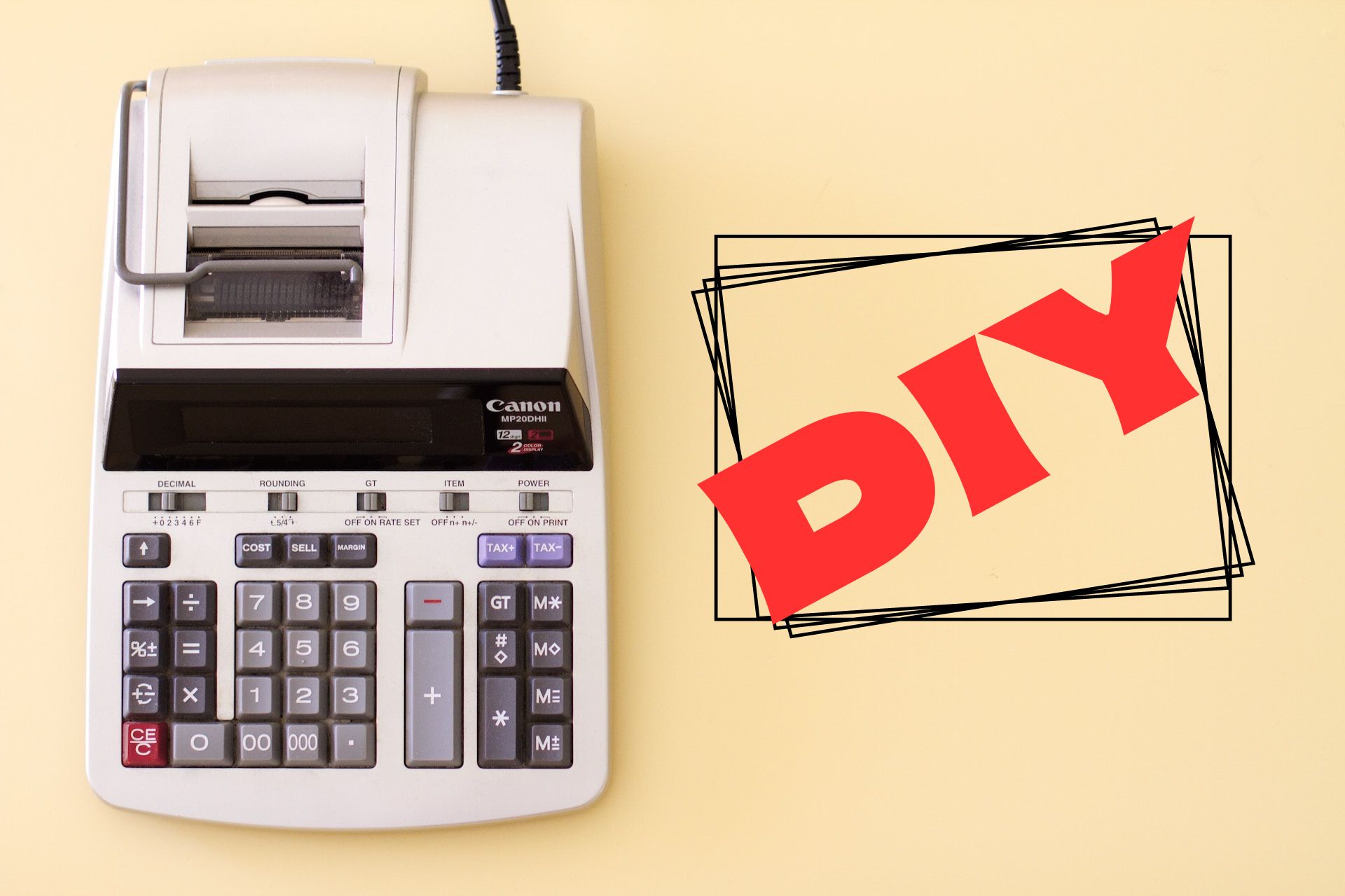Are you a startup or a small business owner who is unsure about the state of your financial management? Maybe you are asking yourself, “Is a bookkeeper even necessary? Can’t I just do it myself?” or “How much are bookkeeping services anyway?” and “Is it worth spending for on a monthly basis?”
Well, do we have good news for you! In this article we are going to help you answer those questions and more so that you can make an informed decision.
Why Do I Need Bookkeeping For My Small Business?
Any business, whether large or small, startup or established, experiences cash flow. This is the movement of money in out of your business. If you have noticed this, you’ll also know that you need to know it! if you don’t keep track of how much you are spending and how much you are profiting, you may find yourself in a bit of a bind.
First, if you don’t track your cash flow, you could end up in debt, or applying for a loan that could take you years to pay off.
Second, businesses need to keep their books up to date for tax compliance and to keep up with other regulations.
Lastly, when your business is in an organized financial state, this leads to organized business practices overall. Through bookkeeping, you can track who you owe and who owes you. You can also view the financial health of your business through financial reporting and analysis. From there, you can make decisions on budget, scaling, pricing, etc.
Types of Bookkeeping
Basic Bookkeeping
In a nutshell, bookkeeping is the daily process of maintaining an organized record of your financial transactions. These transactions include your purchases, sales, payments, and receipts.
Let’s go through some basics of basic bookkeeping.
There are two methods of recording entries in bookkeeping: single-entry and double-entry.
- Single-entry – You record one entry for every transaction. This is typically best for really small businesses and startups who operate on a cash basis.
- Double-entry – You record transactions using credits and debits. Credits are amounts taken out of an account and debits are amounts added to an account. These credits and debits must always equal the same amount. This is known as “balancing” your books.
The five types of accounts in bookkeeping are as follows:
Revenue – What you earn through your business’s servicers or products.
Expenses – This is the cost of running your business.
Assets – These are any resources with monetary value. There are five main asset classes, which are Equity, Cash, Fixed Income, Real Estate, and Derivatives.
Liabilities – This is anything you owe to another entity. Liabilities can be in the form of debts or loans. In your accounts payable, it shows you any money owed to manufacturers, suppliers, etc.
Equity – This is simply what remains after subtracting liabilities from assets.
There are also two different bases for recognizing revenue and expenses, namely cash and accrual.
Cash – You record each transaction upon receiving or paying in cash.
Accrual – You record each transaction when you incur an expense or issue an invoice, meaning cash doesn’t have to enter the accounts before you record them.
Full-Service Bookkeeping
Full-service or full charge bookkeeping involves all of the aforementioned functions, plus additional accounting-related responsibilities. This means that anyone you hire must undergo more certifications and education requirements.
On top of regular bookkeeping duties, full-service bookkeepers also
- Record complex transactions
- Supervise a team of accounting clerks
- Collect information for scheduled audits
- Prepare documents and financial statements for tax compliance and tax returns
- Process payroll and timesheets
- Remitting sales, income, and payroll taxes
Note: Full-service bookkeepers are not a complete replacement for accountants and still need to coordinate with a CPA (Certified Public Accountant).
Pros and Cons of DIY Bookkeeping

When people ask the question, “How much are bookkeeping services?” the typical follow-up questions that aren’t far behind are, “Why do I need to pay someone else?” and “Can’t I do that myself?”
Let’s go through some of the advantages and disadvantages of “do-it-yourself” bookkeeping.
Pros
Best in the Beginning
DIY bookkeeping is definitely the best option when you are first starting out and are able to manage the stream of orders, sales, and expenses. Not only does it give you an understanding of how it is done, but it helps you get a better idea of how your business operates. This can also help you understand the work that bookkeepers do and can help you find a good fit for your business if you do decide on working with one in the future.
Cost-effective
One of the most obvious benefits of DIY bookkeeping is that you don’t have to pay someone else to do it. Bookkeeping services, though some are more affordable than others (more on that later), still have a cost.
Stay in Control and Keep Data Private
Some businesses are hesitant to hire someone else to view sensitive data because they want to keep business records like worker and customer data secure. Of course, reputable bookkeeping services do comply with data privacy laws. Most bookkeeping software also has safeguards in place. However, you are still giving outside access to your financial data, which is something not everyone is comfortable with.
Cons
Learning Curve
While maintaining your own books is a skill that can come in handy, you do need to learn how to do it properly. This is not only for the sake of organization, but also for legality. Taxes are notoriously tedious and confusing and the laws are subject to change from time to time. Not only that, but if you were to use accounting and bookkeeping software like Quickbooks, Xero, or Wave, you would have to learn how to use those tools as well.
Time-consuming
Learning how to properly balance your books can take weeks. Then, you will need to set aside time every week to update your records. If you’re a startup, you know that a lot of work goes into getting a business set up. This additional time spent on accounting takes away from the other moving parts of your business. Every part needs attending to, and more work usually means taking away from your allocated rest time or time to spend with your family.
Not Sustainable at Scale
When your business starts gaining momentum and customers start pouring in, it can be difficult to keep all your financials in order. This gets worse when you factor in trying to coordinate with suppliers, providing customer support services, or working on product development. You need to decide if spending hours on your books is the best thing for your business.
Potential for Error
Some bookkeeping services have more than one bookkeeper to double check to see that records are accurate. If you don’t have someone else who knows what they are doing and can double check your methods (like a qualified accountant), an error could slip past you. This could lead to a fine or an audit. If your attention is split between different business operations, you’re more likely to miss a few important details.
How Much Are Bookkeeping Services?
In the U.S., salaries for bookkeepers vary depending on a number of factors. These include the scope of the work, size of the business, level of experience, skill, and education. The state in which the business is located can also affect how much you should expect to pay. If you live in places with notably higher costs of living like New York and Los Angeles, you can expect higher salaries, even if you hire online.

Salaried Bookkeepers
According to Indeed.com, the salary for a basic bookkeeper ranges from $2,150 – $4,318 per month or $556-$1,116 per week. That’s an average of $3,047 per month and $787 per week.
For full-service bookkeepers, monthly salaries range from $3,002-$5,840 with an average of $4,187. This means weekly salaries range from $776-$1,509 with an average of $1,082.
Hourly Bookkeepers
For a basic bookkeeper in the U.S., hourly rates range from $14.89-$29.91 with an average of $21.10. For a full-service bookkeeper, hourly rates range from $17.03-$33.14 with an average of $23.76.
What are the Costs of Hiring an In-House Bookkeeper VS Outsourcing to a Bookkeeping Firm for Small Businesses?
In-House
If we’re just taking salary into account, then a full-time in-house bookkeeper will cost you between $35,000 and $45,000 annually. However, those aren’t the only expenses you need to take into account.
Other expenses include:
- Worker benefits like healthcare
- Retirement plans
- Sick leave and vacation days
- Equipment or software they use
- Payroll taxes
- Recruitment and hiring costs
Outsourced
While the average hourly rate of in-house bookkeepers is around $21 dollars, that’s near the higher end of what freelance bookkeepers charge. The true range for global hires is about $11-$25 per hour.
This means that outsourced services can cost you between $400 and $2,500 per month. This can also depend on factors how much money your business makes, the individual rate of the freelancers, and the scope of the work.
Already, you can see that this is less than even just the base salary of in-house bookkeepers. Not only that, but you also don’t have to worry about paying any extra taxes, benefits, or overhead costs.
Where Can I Find Reliable Bookkeepers for Less?
Now that we’ve answered the question “How much are bookkeeping services?”, we’re guessing your next question will be “Where can I hire bookkeepers?”
These are our top picks:
What Is EcomBalance?

EcomBalance is a monthly bookkeeping service specialized for eCommerce companies selling on Amazon, Shopify, Ebay, Etsy, WooCommerce, & other eCommerce channels.
We take monthly bookkeeping off your plate and deliver you your financial statements by the 15th or 20th of each month.
You’ll have your Profit and Loss Statement, Balance Sheet, and Cash Flow Statement ready for analysis each month so you and your business partners can make better business decisions.
Interested in learning more? Schedule a call with our CEO, Nathan Hirsch.
And here’s some free resources:
- Monthly Finance Meeting Agenda
- 9 Steps to Master Your Ecommerce Bookkeeping Checklist
- The Ultimate Guide on Finding an Ecommerce Virtual Bookkeeping Service
- What Is a Profit and Loss Statement?
- How to Read & Interpret a Cash Flow Statement
- How to Read a Balance Sheet & Truly Understand It
Conclusion
There you have it. We hope we answered the “How much are bookkeeping services?” question with accuracy and have given you enough information about the importance of bookkeeping, what it entails, and whether or not it’s worth investing in a bookkeeping service.








